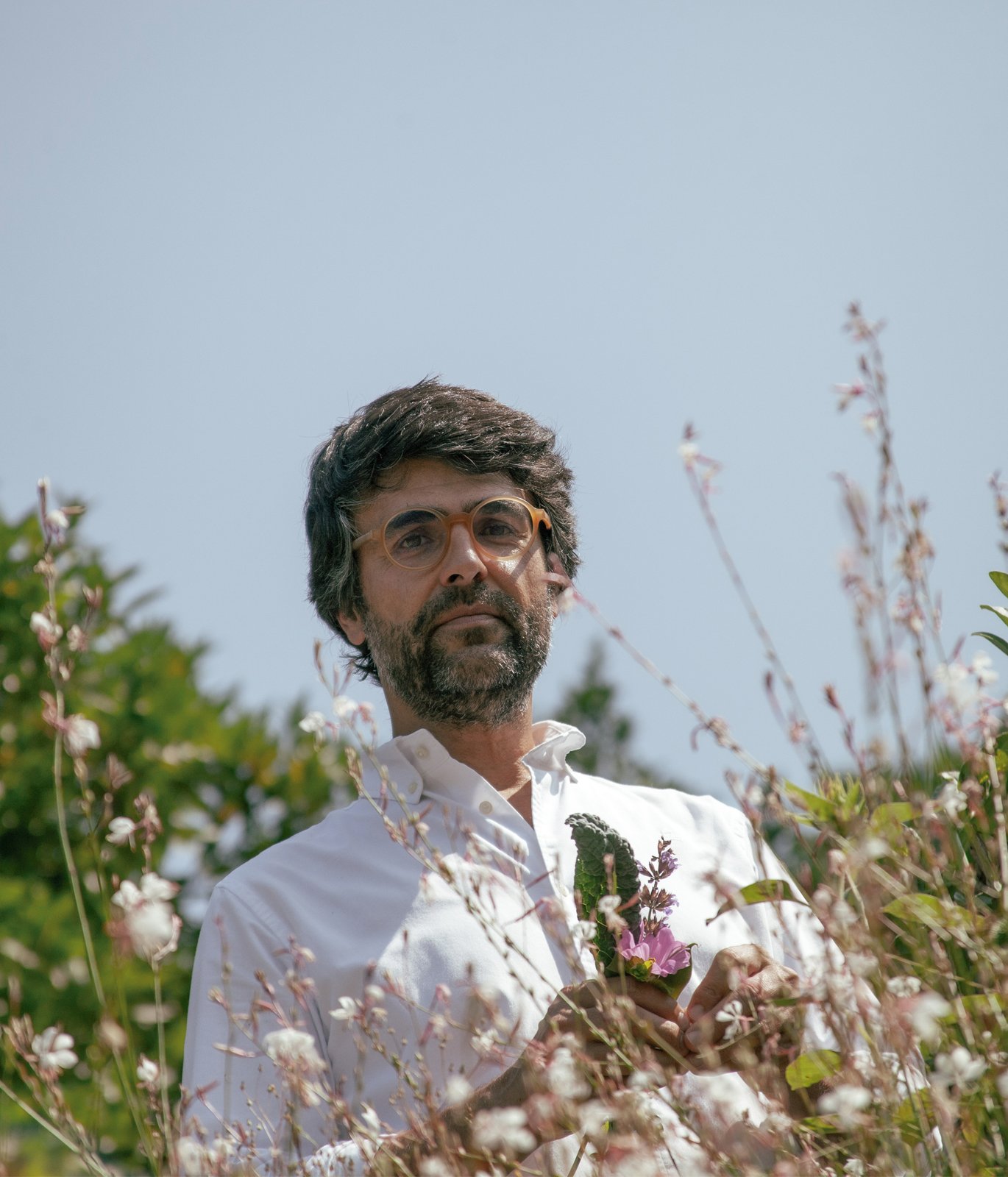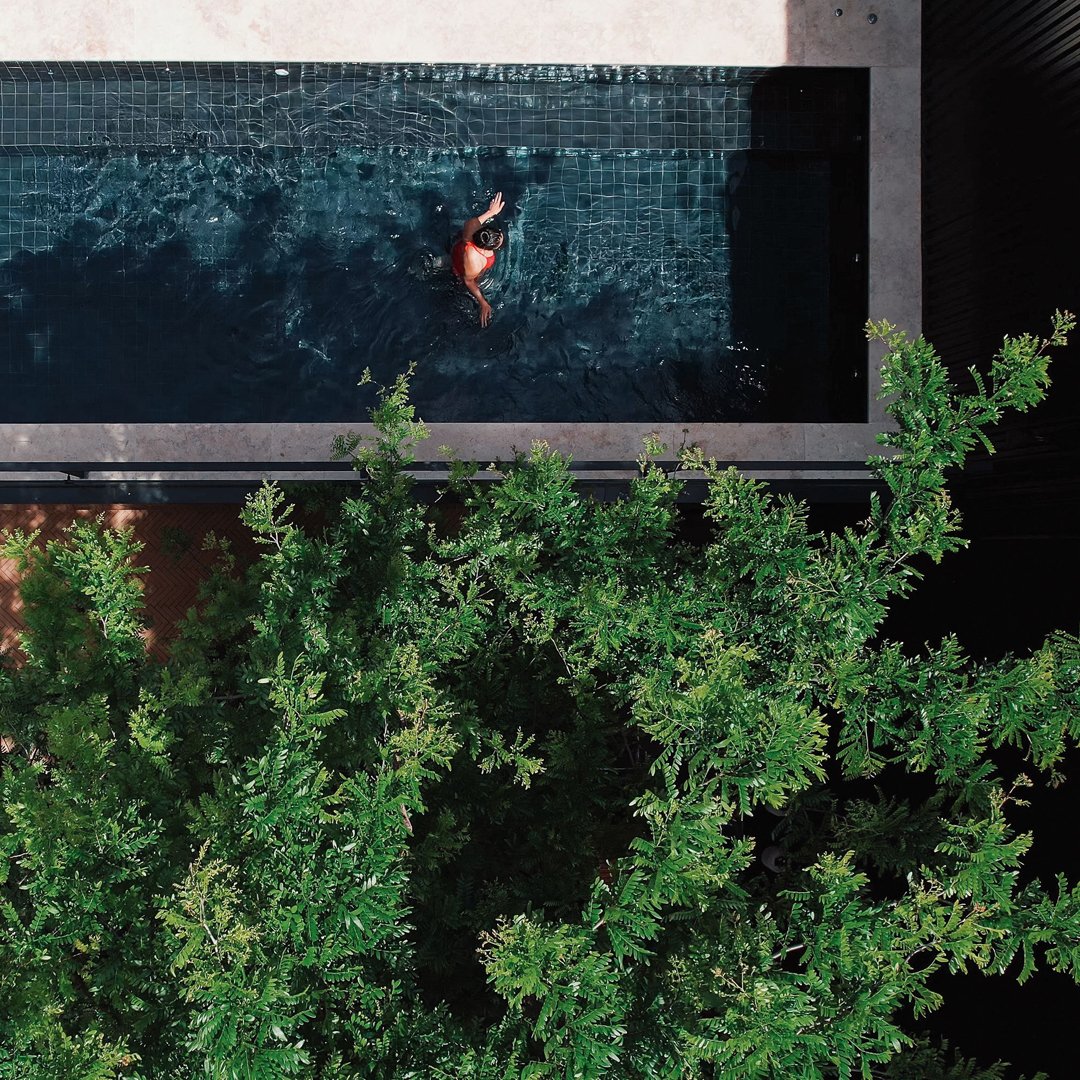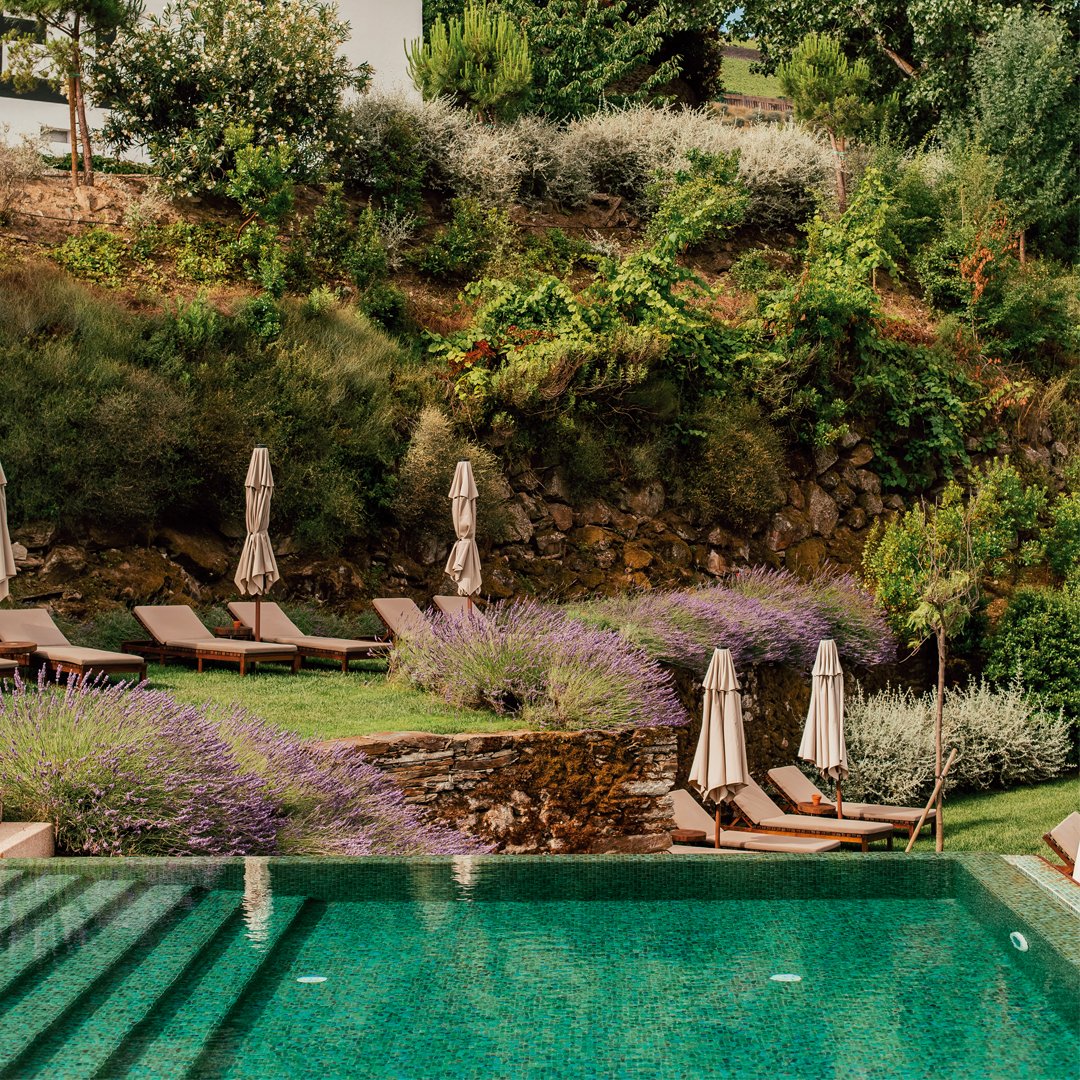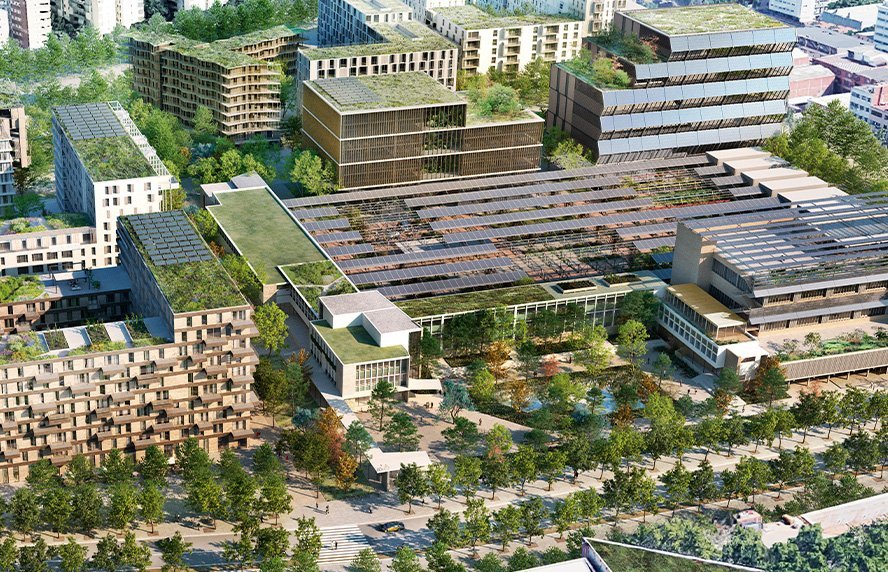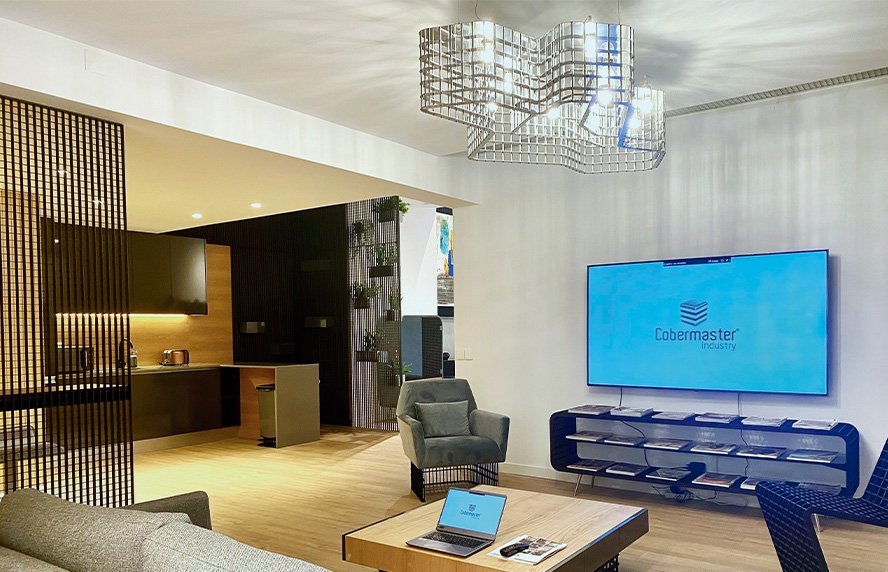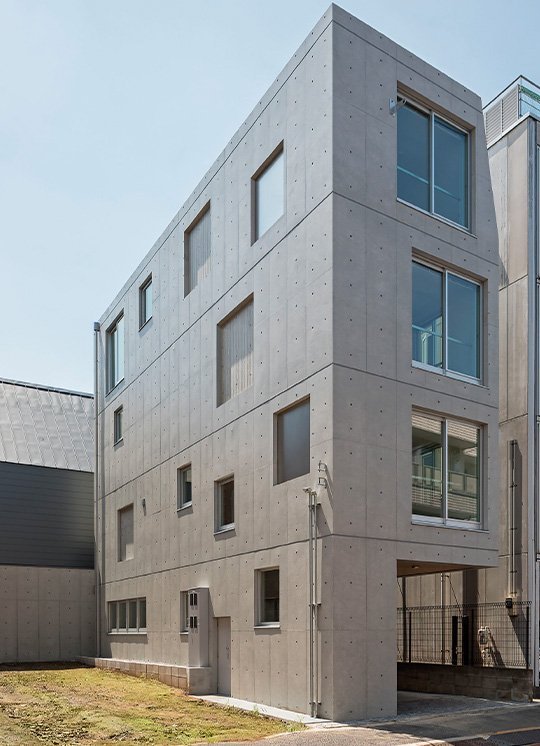How do you get into this world?
I’m from the Alentejo and there’s a love for the outdoors, for the countryside, that begins at a young age. Initially, I went to university in Vila Real to study agricultural engineering and, almost immediately, not least because of the surroundings of the campus itself, I began to take a liking to gardens and green spaces. Sometime in 1999, I had a motorbike accident, spent a long time being immobile and read the book Fundamentos da Arquitetura Paisagista (Fundamentals of Landscape Architecture), by Francisco Caldeira Cabral, who is the father of Landscape Architecture in Portugal. And I realised: "This is exactly what I want to do in life.” So, I was in my second year and I changed my course, from agricultural engineering to landscape architecture. From then on, I developed a love for this field. While I already liked it, as I became more and more entrenched in it, I loved it more and more.
And you haven’t left Vila Real yet?
I go to the Alentejo much less often now; I’ve been here for 26 years. I don’t know if it’s for life, because I also divide a lot of my time between Lisbon and Oporto. I’m always on the road. And I still do a lot of things in the Alentejo, fortunately.
What clients have you had and in what fields have you worked? This is because you work in very different areas and soils of the country...
Even if it was always in the same place, it would always be different, because the clients are different, especially when it comes to private clients. Whether they are companies or even just individuals or families who hire me. Although I also do projects for councils and the state, I mainly work for private individuals. And one of the requirements of this work is to always give a very particular, very distinct response to each client. So, we always try to emphasise the individual nature of each site, each place, each plot of land, each intention, not least because the very nature of the garden means that each site has its own particularities, its soils, its climate, its microclimate. And we always have to adapt our response to these conditions. It is almost a matter of honour to have this individual response to each client. That’s what sets us apart in terms of our solutions to each problem we face.
You’ve done many projects over the years. Is there one that you are particularly fond of?
That’s a very difficult question, it’s like asking if I like one child more than another (he laughs). One that continues to give me great pleasure is the Quinta de Ventozelo, not least because I continue to help maintain the farm. I did the initial project, which started in 2018; then we did the construction part and now I continue to monitor the maintenance of the farm and the vegetable gardens, which is an area that gives me a lot of pleasure. And it is a project that is evolving particularly well. At the moment, we are entering the design part of the estate. A huge challenge – it’s a 400-hectare farm and we’re slowly working on the landscape design, getting into the vineyards. It’s very enjoyable.
In addition, we have a smaller project, but no less important, namely the Hotel Valverde, which started in 2014, and where, even now, I continue to monitor all the maintenance of the garden, which has allowed me, over the years, to carry out a series of renovations in the garden. It’s been almost nine years of garden, a garden in Lisbon, on the Avenida da Liberdade, with a completely different character than the project I mentioned earlier.
You also specialise in permaculture, which means you get to do beautiful and efficient projects...
I specialise in permaculture, but particularly in vegetable gardens. Among the various ways of working, I essentially like to work in vegetable gardens and in an organic way.
People come to you for the work you do. Do you feel that they are thinking more about the long term, about the environment, about reducing stress in their lives? Do you notice that there is also more of a concern for the gardens, for what surrounds us?
I do. And I notice that people want to control what they eat more. They want to have a vegetable garden for year-round consumption, which is always a little difficult. In Ventozelo, we have a relatively large vegetable garden, but we are not able to have all the products for the restaurant all the time. We do manage to have some products that are different from what you can find on the market, both in terms of freshness and, above all, the flavour of each product. We manage to take the product to a much more unique state of maturity. Courgettes, for example: I can pick the courgette flower very fresh, I can pick the courgettes very small, about 10 to 12 centimetres, in a state of freshness that allows us to eat them like cucumbers and put them in a salad. In other words, there is much more control of the product, having it there at hand, rather than when we are waiting for a supplier to bring it to us. And this also comes with a much bigger environmental footprint, but that’s not even the point. In the vegetable garden, we can have endless produce with this control in the kitchen. And cooks really like this kind of privilege, to be able to have these products available - and when I say cook it could be a family - in a state that we rarely get to have. Then you know what you’re putting in the garden, you know the products you’re putting in, the treatment they’re given. And all this is reflected in the flavour. Being on site, we can understand the flavour of things, we can go to the garden to pick some flowers to put in a salad... All this makes people increasingly want to have their own gardens.
"I often say that you have to enter vegetable gardens slowly, because if you enter well, you won’t leave”
